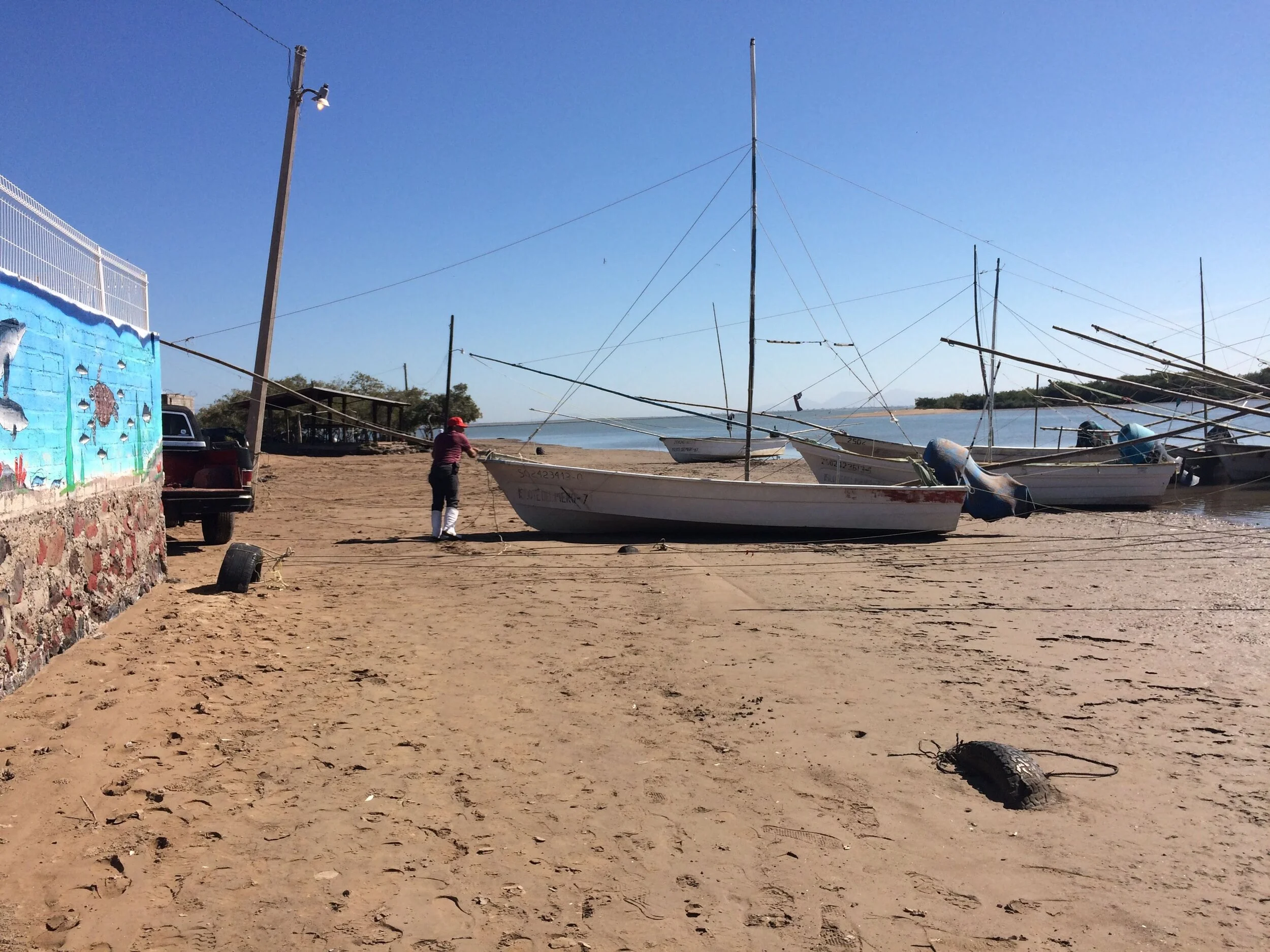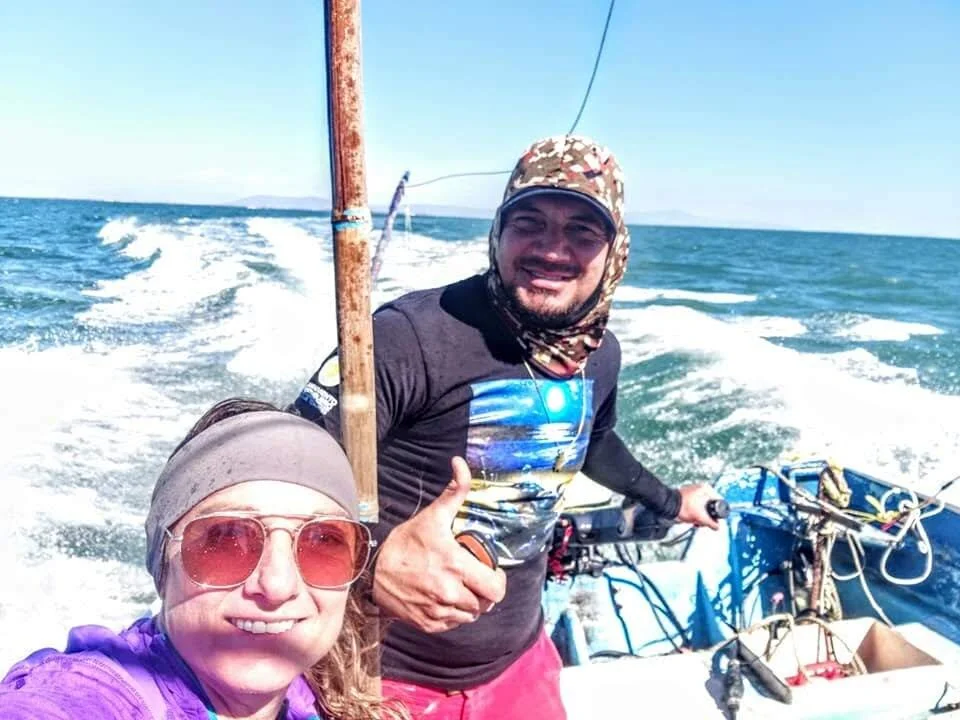Abelino Angulo followed in his father's footsteps. He makes his livelihood as a shrimp fisher in north-central Sinaloa, Mexico where extensive mangrove wetlands line the coast. But Abelino is also a conservationist. He represents the local shrimpers as the Director of Ecology for Angostura and he spends his spare time protecting olive ridley turtle nests on the barrier island of Santa Maria.
Abelino is an artisanal fisher in Sinaloa’s suripera fleet collaborating with researchers to collect data on sea turtles and reduce bycatch in the shrimp fishery. Suripera fishers use the wind and tides to net blue shrimp (Penaeus stylirostris) in the Gulf of California. Two long, thick bamboo poles extend from the bow and the stern of their 12-meter pangas. After motoring to the fishing grounds, they switch off their outboard motors off, unfurl their sails and make the most of the fierce current to drag a shrimp net for 45 minutes to 2 hours.
Upwell researcher Stephanie Rousso with shrimp fisher Abelino Angulo.
Suripera fishers in Sinaloa aim to support their families and meet global demand for shrimp using more sustainable capture methods. Conventional methods for capturing wild shrimp, like bottom trawling, threaten benthic ecosystems, rely on massive fossil fuel subsidies and capture countless non-target species as bycatch, including sea turtles. Monterey Bay Aquarium’s Seafood Watch program, rated the suripera-caught blue shrimp as a “Good Alternative” and the fishery is pursuing certification from the Marine Stewardship Council.
Sea turtles, especially green turtles (Chelonia mydas), feed on seaweed or seagrass in the same areas as shrimp are found. Shrimp nets can catch dozens or hundreds of sea turtles, but mortality is highest when turtles are trapped in nets for extended periods. Upwell researcher Stephanie Rousso began working with Grupo Tortuguero, Abelino and other suripera fishers on how to identify and avoid interactions with sea turtles in high density foraging habitats in order to reduce mortality. Grupo Tortuguero has also trained these fishers on safe handling procedures for disentangling incidentally captured turtles from shrimp nets. Suripera fishers, like Abelino, collaborating on this research have proven to be strong allies for sea turtles by reporting illegal fishing and poaching of sea turtles in addition to collecting data on sea turtles accidentally caught in their nets before releasing them.
Suripera shrimp fishing boats.
Upwell’s partnership with Grupo Tortuguero de las Californias, Dr. Alan Zavala Norzagaray from CIIDIR Sinaloa-IPN and Dr. Dinorah Herrero of CICIMAR aims to not only collect and analyze the sea turtle data from suripera fishers but also maximize suripera fishers’ ability to protect turtles at sea. We are grateful to Abelino for his commitment to ensuring the survival of endangered sea turtles in the Gulf of California.



